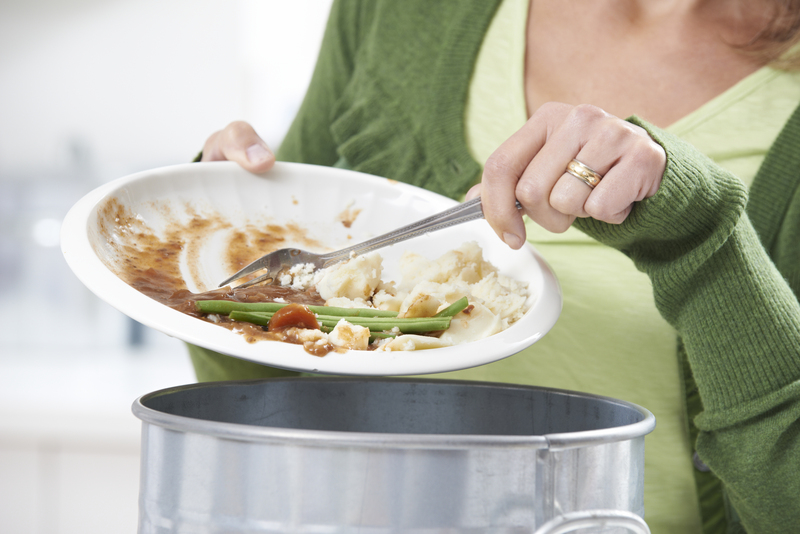Sustainable Options for Donating or Recycling Pots and Pans
Have your pots and pans reached the end of their culinary journey? It's a familiar conundrum--what's the most sustainable way to get rid of old or unwanted cookware? With environmental consciousness on the rise, many are seeking ways to ensure their kitchenware doesn't end up clogging landfills. This comprehensive guide explores diverse, eco-friendly options for donating or recycling pots and pans. You'll discover responsible alternatives that give your items a second life and minimize environmental impact.
Why Should You Consider Sustainable Cookware Disposal?
Kitchenware like pots and pans usually contain materials such as aluminum, stainless steel, copper, and non-stick coatings. Throwing these items in the trash is not only wasteful but can contribute to landfill overcrowding and environmental pollution. By choosing to donate or recycle old cookware, you:
- Reduce landfill waste and environmental toxins
- Support local charities and communities
- Conserve natural resources by promoting reuse
- Encourage a circular economy and sustainable living

How to Evaluate Cookware Condition for Donation or Recycling
Before deciding the fate of your used pots and pans, assess their current state. Ask yourself:
- Is the cookware still functional?
- Are there visible signs of warping, excessive scratching, or non-stick coating peeling?
- Is it clean and free of baked-on residue?
- Would someone else find it useful?
If your old pots and pans are still in good working order, donating is often the best sustainable option. For damaged or unusable items, recycling is a responsible alternative.
Sustainable Options for Donating Pots and Pans
1. Local Charities and Nonprofits
Many charities gladly accept secondhand kitchenware. Organizations such as shelters, transitional housing programs, and food banks often serve individuals in need of basic household items. Consider contacting:
- Homeless shelters
- Women's refuges
- Local food banks
- Immigrant and refugee support organizations
- Community kitchens
Always call first to confirm they accept cookware donations and to inquire about their specific needs.
2. Thrift Stores and Secondhand Shops
Nationwide chains like Goodwill, Salvation Army, and various local thrift stores frequently accept gently used pots and pans. These items are resold at affordable prices, supporting both the organization's mission and people looking for low-cost kitchen essentials.
3. Freecycle, Buy Nothing Groups, and Online Communities
The rise of online sharing communities has made sustainable giving even easier. Platforms like:
- Freecycle
- Buy Nothing Project
- Facebook Marketplace (set item as "Free")
- Nextdoor neighborhood app
enable you to pass on your pots and pans directly to neighbors who need them, often without the hassle of transporting them far.
4. School and Community Programs
Schools with culinary programs, community centers, or local art projects might be delighted to receive donated cookware. Sometimes, pots and pans are used not only for cooking classes but also as inexpensive materials for crafts or science projects. Always check program requirements before dropping items off.
5. Donation Drives and Swaps
Watch for local kitchenware donation drives or neighborhood swap events. These events are excellent opportunities for sustainably rehoming pots and pans you no longer need.
Responsible Ways to Recycle Old Pots and Pans
If your damaged cookware can no longer be used, don't despair! There are sustainable recycling options for pots and pans, depending on what they're made of. Here's how to make sure your cookware doesn't end up in a landfill:
1. Municipal Recycling Programs
Most city recycling services don't accept pots and pans in curbside recycling bins because these items are bulky and often not sorted properly at recycling facilities. However, many municipalities offer special collection or drop-off days for scrap metal.
- Check your city's website for "scrap metal recycling" or "household items recycling events."
- Remove all non-metal parts, such as plastic handles or glass lids, before recycling.
2. Scrap Metal Recyclers
Metal recycling centers are one of the best sustainable options for recycling non-stick pans, steel, and aluminum pots. Locate a reputable scrap yard in your area that accepts household metals. Guidelines include:
- Separate cookware by material type (e.g., stainless steel, aluminum, copper)
- Remove plastic, rubber, or wooden parts
- Clean the items to the best of your ability
Scrap yards often pay you a small amount for recyclable metals, so it's a win-win for your wallet and the planet!
3. Manufacturer or Retailer Take-Back Programs
Some cookware brands and retailers offer take-back or recycling programs. These programs typically let you drop off old cookware (regardless of brand) for responsible recycling whenever you purchase new items. Examples include:
- TerraCycle Partnerships: Some manufacturers partner with TerraCycle to responsibly upcycle kitchen products.
- Zero-waste retail programs from stores like Sur La Table.
- Occasional mail-back programs--check brand websites for details.
4. Creative Upcycling for Pots and Pans
Feeling creative? Upcycling is a highly sustainable option that breathes new life into worn kitchenware. Here are some inspiring ideas:
- Transform old frying pans into wall clocks, planters, or quirky kitchen decor.
- Use pots as flower pots or container gardens on your balcony.
- Repurpose large baking pans as craft storage or organizer trays.
Upcycling helps prevent unnecessary waste and can make for fun DIY weekend projects!
5. Specialized Recycling Services
If local options are limited, research national or regional organizations offering hard-to-recycle kitchenware solutions. Some environmental non-profits will collect cookware, or you may be able to ship items to designated recycling facilities for a small fee.
Cautions: When Not to Donate or Recycle Pots and Pans
There are some types of pots and pans that require special disposal:
- If your cookware is coated with Teflon and the surface is heavily chipped or peeling, it should not be donated.
- Do not donate or recycle cookware contaminated with hazardous substances.
- Check local regulations regarding items with non-stick coatings or composite materials, as these may need special handling.
Safety and transparency are paramount--never pass on cookware that could pose a risk to others.
Frequently Asked Questions on Eco-Friendly Cookware Disposal
What types of cookware can be recycled?
Stainless steel, aluminum, copper, and cast iron pots and pans are widely recyclable as scrap metal, so long as you remove non-metal parts. It's best to check with your local recycling center to confirm what they will accept.
Can non-stick pans be recycled?
Non-stick pans (including Teflon-coated cookware) are trickier to recycle. Many recyclers require you to remove the coating before accepting the metal base. Some specialized recycling programs will take them as-is. Ask your recycling center or explore sustainable cookware recycling services online.
Is it better to donate or recycle old cookware?
If your pots and pans are still usable, donation is the most sustainable option, as it extends the life of the product and helps someone in need. Recycling is preferred for broken, unsafe, or excessively worn cookware.
What should I do before recycling pots and pans?
Clean them thoroughly and remove all non-metal parts, such as handles or glass lids. Sort by metal type if possible, and deliver to the correct recycling program or facility. Follow any additional instructions from your local recycler.
Tips for Sustainable Cookware Choices in the Future
- Buy quality over quantity: Invest in durable, high-quality cookware that stands the test of time.
- Choose recyclable materials: Opt for stainless steel, cast iron, or pure aluminum when possible.
- Skip excessive coatings or bonded materials that complicate recycling.
- Take care of your pots and pans: Clean and store them properly to extend their lifespan.
The Bottom Line: Responsible Disposal Protects the Planet
Responsible donation or recycling of pots and pans is an easy but powerful way to support sustainability. Whether you gift your cookware to someone in need, upcycle it into home decor, or recycle the metal responsibly, every small action counts. The next time you clean out your kitchen, remember these eco-friendly disposal options. Your choices today will help preserve resources and reduce waste for tomorrow.
Ready to part with your old kitchenware? Start by assessing condition, explore donation possibilities nearby, or identify trustworthy recycling partners. Together, we can ensure our kitchens--and our planet--stay greener for generations to come.

Summary Table: Sustainable Disposal Options for Pots and Pans
| Option | Suitable For | Key Benefits |
|---|---|---|
| Donate to Charities | Usable pots and pans | Helps those in need, reduces waste |
| Thrift Stores | Gently used cookware | Supports community, promotes reuse |
| Online Sharing Groups | Varies | Local exchange, quick and easy |
| Scrap Metal Recycling | Broken metal cookware | Recovers materials, eco-friendly |
| Manufacturer Tie-in | Used or unusable pots/pans | Convenient, may offer incentives |
| Upcycling | Creative projects | Personal use, prevents landfill waste |
References & Additional Resources
- U.S. Environmental Protection Agency: Recycling Basics
- Buy Nothing Project
- A to Z of Recycling: Kitchenware
- Goodwill: Donate Goods
Make a sustainable choice for your cookware-- your kitchen, community, and the Earth will thank you!
